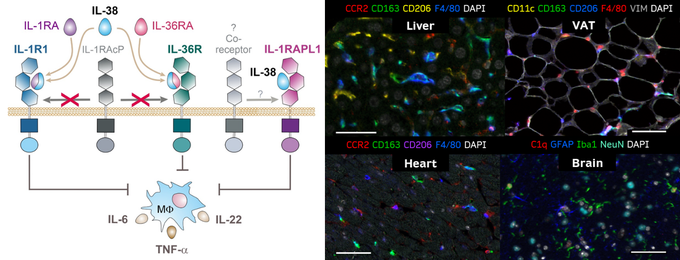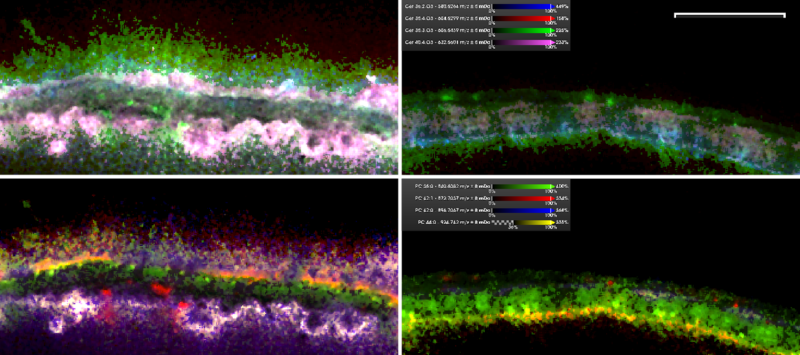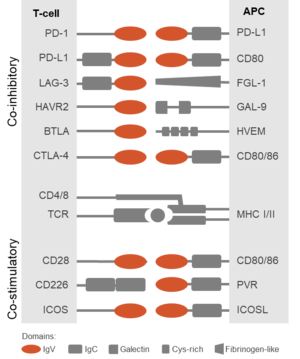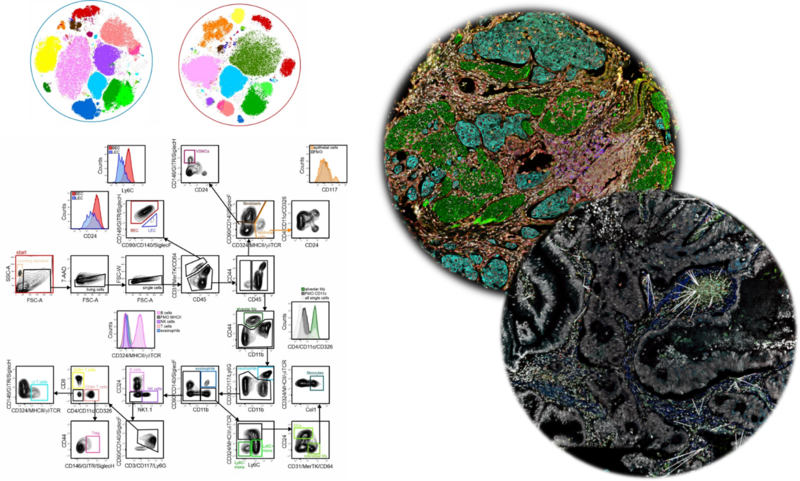Sie befinden sich hier
Inhalt
Our research focuses on understanding the mechanisms of the resolution of inflammation and how the failure to properly execute these mechanisms contributes to the development of diseases including chronic inflammation and cancer. Our specific research topics are the following:
IL-38 signaling in inflammation
IL-38 is proposed as an IL-1 family receptor antagonist and is involved in the resolution of inflammation. Our own data suggest that IL-38 limits chronic inflammation, while its neutralization re-activates the immune system against tumors. However, the IL-38 receptor and molecular details of its action remain elusive. We address these open questions in models of cancer and metabolic diseases.
Macrophages and metastasis
Macrophages are involved in all stages of tumor progression and have been linked to metastasis. We explore the role of metabolism and ageing in the response of resident and recruited macrophages to disseminated tumors cells leading to metastatic disease using animal models as well as 3D human organoid models.
Lipid Signals in inflammation and cancer
Lipids are essential molecules for energy storage and lend structure to cells by forming membranes. However, lipids also have important signaling functions by serving as ligands for specific receptors or even as antigens. We analyze the functional contribution of such lipid signaling molecules to shaping immune responses in inflammatory conditions, including cancer.
Immune checkpoint modulation during inflammation
Immune checkpoint blockade has proven effective in re-activating the immune system in cancer, but can cause severe auto-immune or auto-inflammatory side-effects. Thus, triggering immune checkpoints may be beneficial in auto-immune or auto-inflammatory disease settings, as well as in transplant settings. We explore such options using engineered immune checkpoint modulators in models of auto-inflammation and graft-versus-host disease.
Quantitative and spatial single cell analyses
We develop and improve techniques for quantitative and spatial analysis of single cells, including spectral flow cytometry, scRNA-seq/CITE-seq, and multispectral imaging/MS-Imaging approaches. With our established bioinformatics pipelines and experimental expertise, we are open for collaboration and support.





